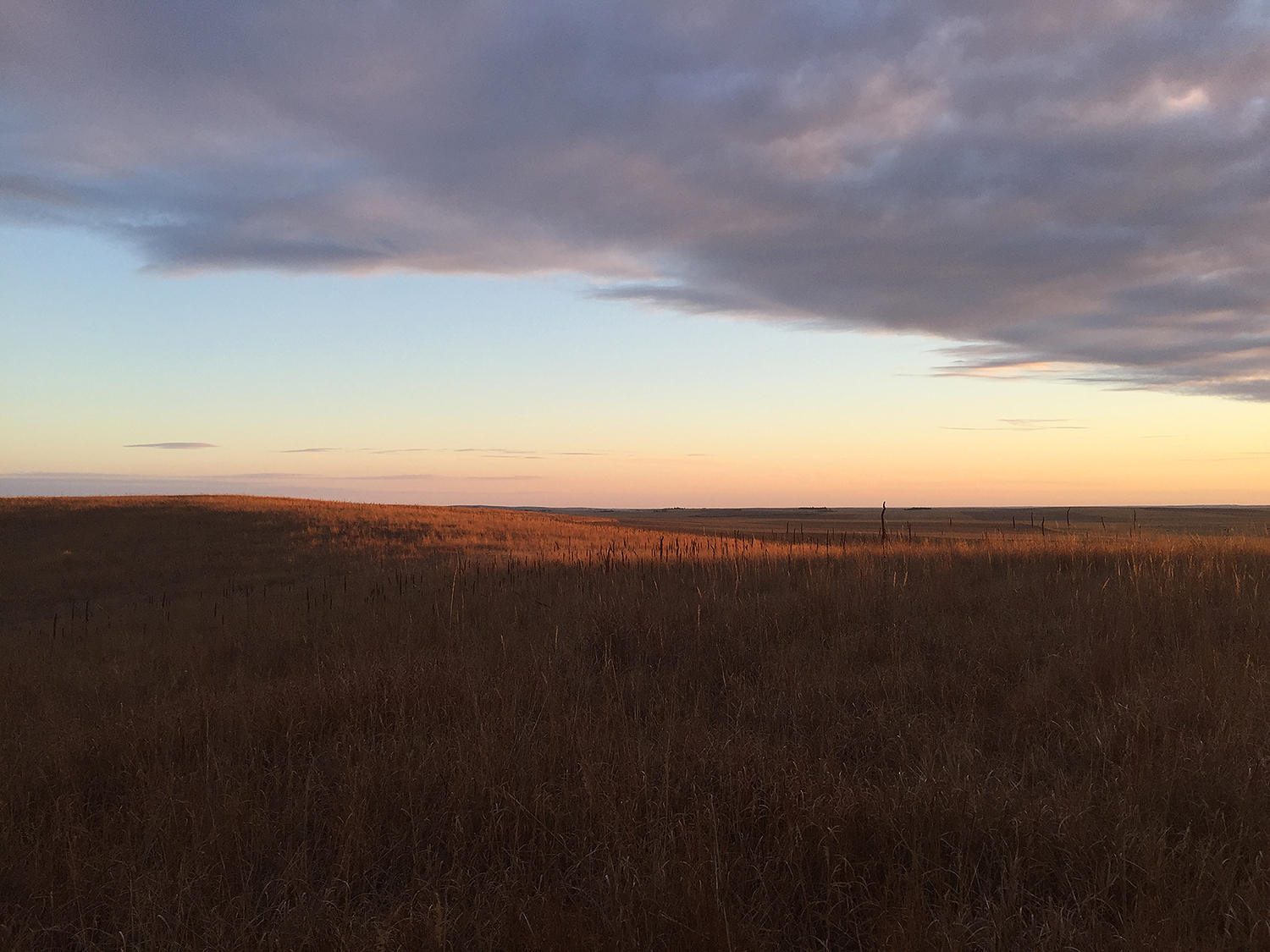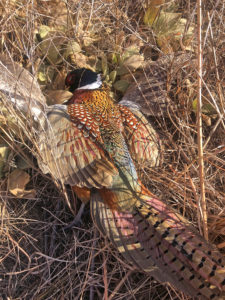WE CLOSED THE SEASON YESTERDAY, FREYA THE BRITTANY AND I, PASSING THE LAST HOURS IN A LONG WALK OVER THE HILL TO A PLACE I CALL “THE SECRET SPOT” because the best cover is out of sight from the road. We were both limping a bit, Freya because of the screw in her right elbow that holds the end of her humerus together but still gives her some arthritis, and I because an unexpected encounter with a badger hole a few miles back had given one of my aging knees a wrench.
Considering our condition, the prudent thing would have been to call it a day, but this was the last day, and I think it was fair to say that neither of us was willing give up the final hours. I knew it would be almost nine months before we passed this way again. Freya is probably not burdened with such foresight— the chase is simply her reason for being, the white-hot flame that flares in her eyes as she catches the scent and burns there when she points. So we went on to the bitter end.
Which brought us here, to the first day of February, with the northwest wind rattling the windows and threatening snow, bereft. Freya is curled up tightly in her favorite spot, recovering from the last hard week, her eyes following me as I walk in and out of the room, expecting another ride to the country. The vest is hanging in the closet; the boots are in the corner, their seams frayed, their toes polished black by the endless miles of prairie grass, thistle stems, and crop stubble, down at the heel, soles worn smooth. I have chores that have been too long postponed, but for this day at least, I’d rather look back over the last three months and consider what it was I found there.
There were birds, of course: neon rooster pheasants rising with a shower of frost in the first morning sun, coveys of bobwhite quail exploding underfoot, flocks of prairie chickens and sharptails beckoning on the horizon. We hunters speak of such moments in shorthand, stringing them together like jewels on a necklace, even though we all know how rare and fleeting they are.
My overarching memory of the season is far less tangible. It is a feeling of sky and wind on my face; bright sun and snow squalls; cold that penetrated to the skin like an ice pick; sudden, unexpected warmth in the shelter of a cutbank; a short-eared owl floating over the grass; a prairie falcon streaking low over the cover like an arrow from the bow; a guild of tree sparrows and juncos picking seeds in a patch of kochia; crystals of frost clinging to the grass like diamonds in the dawn; a string of mule deer disappearing over the far ridge; the buck standing up, thirty yards away, in a stand of switchgrass; the color of little bluestem in the last five minutes of the day; a skein of snow geese almost invisible against the cirrus, their tenor traveling chorus floating down out of heaven like an anthem. The fuzzy leaves of mullen flat to the ground, green in the depths of winter. The graceful curve of an empty milkweed pod. The drag of the heavy cover on my feet at the end of ten straight hours in the field. Knees that don’t want to lift for the next step.
Such is the content of the hours and hours spent for the second of the shot. When I was young, I wanted one without the other. When the shooting was slow, I was irritated. Little by little, I learned what I was told was patience— distracting myself with thoughts of appointments, commitments, deadlines until the dog caught scent or I heard the slap of a primary on the grass behind me. I’m not sure that approach improved my wing shooting, but I suppose it lowered my blood pressure.
As the miles and the years have passed, I’ve settled into something altogether different. When I’m in the field, a thought will occasionally roll through my head, but mostly, I’m just there, behind the dog, in the moment. If I had to pick one word to describe the mental state, it would be meditation. The occasional points, the shots, the birds in the bag are a critical part of the whole—they supply the motivation for the day and test particular skills in hunter and dog.
But they aren’t the only part.
After sixty years in the field, it seems that what I hunt is not only a bird, not only a day, but a frame of mind. Maybe even a state of grace. I can’t tell where the importance of one stops and another starts. But I think it’s why I keep coming back.


Leave a Reply
You must be logged in to post a comment.